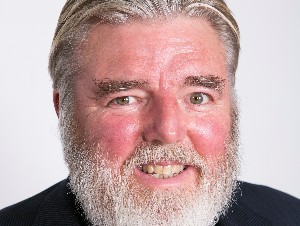First grants made with holiday homes money
The PAA Legacy Trust has started to make grants to the financial advice sector.
Wednesday, March 11th 2020, 5:57AM  6 Comments
6 Comments

The trust was set up to manage the proceeds of the sale of the PAA's holiday homes. Its purpose is to promote and educate financial advisers.
Trevor Slater, spokesman for the trust, said it had made its first two grants, of $20,000 each.
One was to Financial Advice New Zealand, for research into "awareness of financial advice in the wider community" to help their promotion of the work of financial advisers.
Life Info received money to fund its not-for-profit work developing the life-info.org.nz consumer website, which gives information about insurance.
Slater said the trustees felt these grants were appropriate because the trust had received more than the $2 million it had expected.
There had been an unexpected tax refund for the PAA through the wind-up process.
"In light of current regulatory changes facing advisers, both of the applications are ones which will benefit and endorse the work of financial advisers in New Zealand."
The trustees also agreed to create an information website to include the legacy history of the funds from the PAA, the trust objectives, contact details, and information on how people could apply for a grant.
The $2.1 million left over after the grants were made has been invested, with $1.055 million with each of Jarden NZ and JMI Wealth.
Slater said the trust had received submissions from four investment managers who had the credentials required to manage the money.
There is also $20,000 left in a cash account for operating expenses.
Slater said it had not yet been decided how much money would be given in grants each year.
"To a great extent the amount we will be giving as grants will depend on the investment returns and any proposal submitted to the trustees. If we look at a very conservative return this will provide $40,000. However, when we know the return the trustees will then decide how much to make available."
| « More career progression likely in new advice world: Shanks | Mann on a mission to diversify financial advice » |
Special Offers
Comments from our readers
We also have an experienced accountant providing advice on such issues as tax. They along with myself have been charged with looking after these funds and respecting their origin from the PAA members.
Of course our investment aim is far higher than 2% but in the current climate that is of course somewhat of an unknown unless you want to take high risks which is not the profile of the Trust.
A simple website is in the process of being set up which will contain all information about the Trust and you would be welcome to contact the Trust with comments based on that information rather than a simple press release.
These funds were accumulated over many years. The enjoyment and pleasure we had planned for our future is no longer.
Many of us feel saddened that these benefits have been denied our future.
These benefits were not willingly gifted to the PAA Legacy Trust. The members holding credits in the holiday home scheme were out-voted by those who had no stake in the holiday home scheme. The funds we had accumulated are now being used by others.
Please use these moneys well.
It was almost like a cooperative among holiday home scheme members and we all enjoyed the benefits of these homes.
I remember putting in a number of days on maintenance on the second Taupo property over many years.
Very sadly missed.
As Geoff says - use the money wisely, please.
Since our holiday homes were taken off us, we who paid for them have had no reports of any kind sent out to us, at least not to me (a Life Member of PAA)
Why is this and why can't we find a web site for the trust, or any address we can write to? The people the trust was set up to serve seem to be being ignored.
Sign In to add your comment
| Printable version | Email to a friend |




I would assume the Trust has been structured to get tax exemption - if not, why not? At worst if it isn't, then couldn't it distribute all its taxable income to charities or donee organisations and pay no tax that way.
I would have thought allowing the beneficiary to struggle/die while there was a lot of money available was a very sub-optimal strategy.